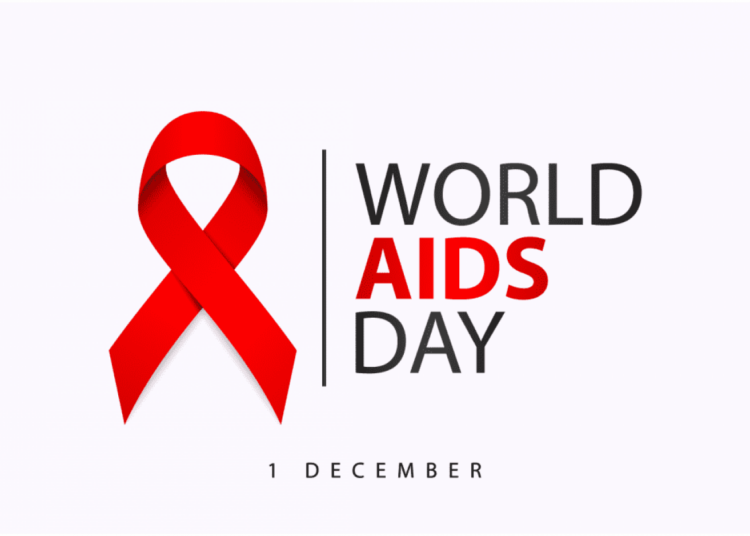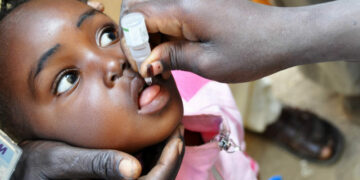Every December 1, United Nations agencies, governments and civil societies together join efforts in campaigning around specific themes related to Human Immunodeficiency virus (HIV).
Since 1988, communities have stood together on World AIDS Day to show strength and solidarity against HIV stigma and to remember lives lost from AIDS-related illnesses.
Each World AIDS Day focuses on a specific theme. This year’s theme “Take the rights path” underscores upholding everyone’s human rights as an essential underpinning of an effective HIV response.
A new report by the United Nations Agency on AIDS ( UNAIDS) shows that the world can meet the agreed goal of ending AIDS as a public health threat by 2030, but only if leaders protect the human rights of everyone living with and at risk of HIV.
The UN agency recognised that gaps in the realisation of human rights for all are keeping the world from getting on the path that ends AIDS and are hurting public health. Now, a surge in attacks on rights is threatening to undermine the progress that has been made.
We know that every human has a right to earn a living and to social participation through work and this is encapsulated in Article 23 of the Universal Declaration of Human Rights and the International Covenant on Economic, Social and Cultural Rights (ICESR) to which Nigeria is a signatory.
As a newspaper, we are worried that the country continues to face a significant challenge in preventing mother-to-child transmission of HIV with low paediatric HIV coverage .
In absolute numbers, South Africa (9.2 million), followed by Tanzania (2.55 million) and Mozambique (2.48 million) and Nigeria (2.45million) had the highest HIV/AIDS number of cases by the start of 2024.
The UNAIDS 2023 report shows that approximately 160,000 Nigerian children aged 0-14 are living with HIV, with 22,000 new infections and 15,000 AIDS-related deaths occurring each year.
A study carried out by The Lancet last year showed that HIV prevalence in Nigeria varies by state, with Benue at 5.7 per cent has the highest prevalence, followed by Rivers 5.2 per cent, Akwa Ibom 3.5 per cent, Edo (3.4 per cent and Taraba 3.0 percent placing fourth and fifth, respectively. Jigawa had the lowest HIV prevalence (0.3 per cent), which was consistent with prior estimates.
Speaking at a press conference to commemorate the World AIDS Day, the director-general, National Agency for the Control of AIDS (NACA), Dr. Temitope Ilori, emphasised the urgency of this year’s theme: “Take the Rights Path: Sustain HIV Response, Stop HIV Among Children to End AIDS in Nigeria by 2030.”
According to her, Nigeria is faced with a critical challenge in preventing mother to child transmission of HIV despite creating a comprehensive national strategy and financial commitment.
Ilori who disclosed that 1.4 percent, aged 15-64 years with an estimated two million people living with HIV in the country, attributed it to systematic problems, ignorance, stigmatization and discrimination.
Sadly, we are aware that across many states in most of the Primary Health Care Centres (PHCC) which are domiciled in communities, the ante natal clinics do not have testing kits for pregnant women which are essential in testing HIV status of these women and in places where they have, the health workers charge user fees which is not supposed to be since they are donors.
In addition, some pregnant women are charged as high as N12,000 for delivery kits and N5,000 for registration for ante natal, which is quite high in view of the economic realities.
But providing an HIV-positive mother with antiretroviral therapy (ART) and support services throughout pregnancy, delivery, breastfeeding, and for the rest of her life can effectively eliminate this risk.
We recall that on February 11, 2015, then former President Goodluck Jonathan, signed a new anti-discrimination bill into law that protects the rights and dignity of people living with HIV.
The HIV/AIDS Anti-Discrimination Act 2014 makes it illegal to discriminate against people based on their HIV status and also prohibits any employer, individual or organization from requiring a person to take an HIV test as a precondition for employment or access to services.
However, since the law was enacted, there has not been much awareness, public education and sensitization against discrimination of persons living with HIV and AIDS except on a day like this when the issue comes up.
But this year’s theme joins a growing list of challenges that World AIDS Day has alerted people to globally.
Awareness-raising activities take place around the globe, with many people wearing red ribbon, the universal symbol of awareness of, support for and solidarity with people living with HIV and people living with HIV making their voices heard on issues important in their lives.
This newspaper knows that World AIDS Day remains as relevant today as it has always been, reminding people and governments that HIV has not gone away.
In our opinion, there is still a critical need for increased funding for the AIDS response, to increase awareness of the impact of HIV on people’s lives, to end stigma and discrimination and to improve the quality of life of people living with the disease.





